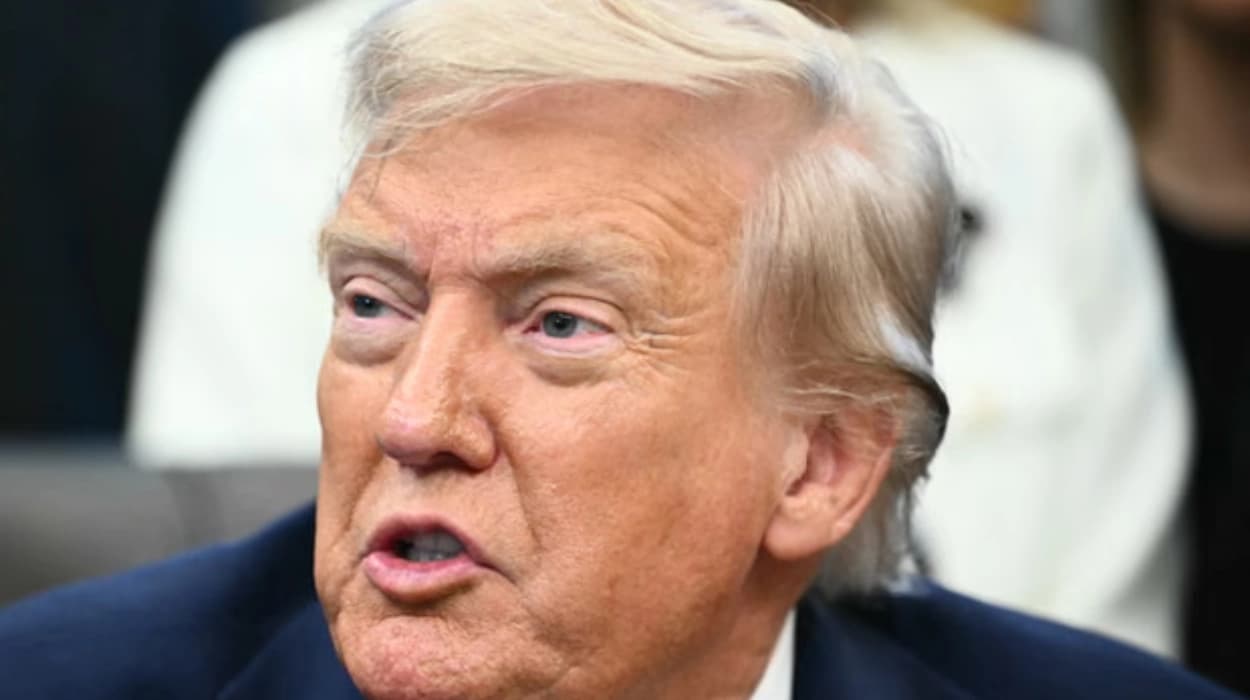Summary
- Trump threatens tariffs on countries taxing US tech firms.
- Targets nations with digital taxes and restrictive regulations.
- Warns of export restrictions on US technology and chips.
- Criticizes exemptions for China's largest tech companies.
Trump claimed that policies like the UK's digital services tax, which levies a 2% revenue tax on multinational tech firms to earn roughly £800 million a year, similarly "outrageously give a complete pass to China's largest tech companies."
"Digital taxes, legislation, rules or regulations are all designed to harm, or discriminate against, American technology,"
the US president stated in a statement on his social media network, Truth Social.
The EU and the UK, both of which recently signed trade agreements with the US, are under pressure from the threat. Through the Digital Services Act, the EU has put rules in place to curb the influence of large internet companies, and several member states, notably France, Italy, and Spain, have implemented levies on digital services.
Trump said:
“As the president of the United States, I will stand up to countries that attack our incredible American tech companies. Unless these discriminatory actions are removed, I, as president of the United States, will impose substantial additional tariffs on that country’s exports to the USA, and institute export restrictions on our highly protected technology and chips.”
The UK's digital services tax (DST), which was implemented in 2020 and maintained following the May trade agreement with the Trump administration, has drawn criticism from US authorities.
Trump has voiced his displeasure with the effect that DSTs worldwide are having on American businesses. Threatening tariffs in response, he signed an executive order in February titled Defending American Companies and Innovators from Overseas Extortion and Unfair Fines and Penalties.
It was revealed in April that Keir Starmer had given large US tech businesses a lower headline rate of the DST in order to appease Trump, but also imposed the levy on foreign corporations.
Trump said on Monday:
“America, and American technology companies, are neither the ‘piggy bank’ nor the ‘doormat’ of the world any longer. Show respect to America and our amazing tech companies or consider the consequences.”
A week after the United States and the European Union announced in a joint statement that they would work together to "address unjustified trade barriers," he issued his warning. The EU, however, stated independently that it had not promised to change any digital laws.
What legal steps could affected countries take to counteract US measures?
File a complaint at the World Trade Organization (WTO): If countries believe it is advisable to challenge U.S. tariffs or trade barriers, they can take their claims to the WTO Dispute Settlement Body if they feel the tariffs violate international trade agreements. The WTO Dispute Resolution process seeks rulings that enforce compliance or compensation.
Countries can respond with tariffs on American-made goods, or utilize non-tariff measures, in pursuit of their economic interests and induce negotiation. Countries can also respond to tariffs through diplomatic negotiating, to achieve a mutually acceptable resolution without prolonged disputes.
Some countries, like the EU, have anti-coercion instruments that allow for countermeasures against the use of economically coercive behavior,on trade or investment or funding restrictions involved .

